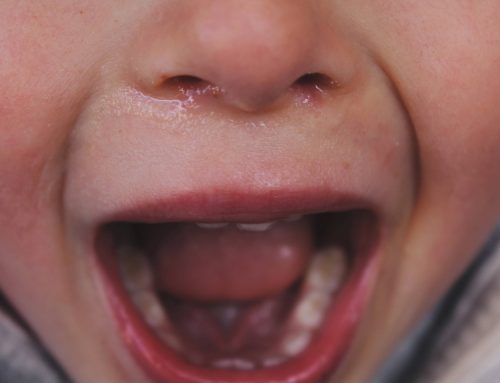If you lead a healthy lifestyle, your teeth and gums are likely to remain healthy throughout your life. However, we all enjoy treats now and again, and that can have a negative impact on our oral health.
Studies have shown that oral hygiene affects overall general health, with some oral diseases linked to heart disease and strokes. Bacteria in the mouth may enter the bloodstream causing infections in other parts of the body. Poor oral health is also linked to high blood pressure and heart disease.
So follow these top 10 oral care tips for the whole family, to help keep your teeth and gums in tip top condition.
1. Brush Your Teeth Twice a Day
Brushing at least twice a day helps prevent tooth decay, halitosis, and gum disease by removing plaque. Ideally, brush your teeth in the morning and before bed.
Remember, be gentle. Brushing too hard or using hard-bristled toothbrushes can damage your teeth and gums. Use soft-bristled brushes and apply gentle pressure to protect your tooth enamel and delicate gums. Consider an electric toothbrush, if you find it easier.
- Brush teeth gently with toothpaste rich in fluoride
- Ensure your toothbrush has soft bristles and a small head
- Brush for three minutes minimum, in the morning and before bed
- Clean all surfaces of your teeth, including your tongue and gums.
- Replace toothbrushes every three months, sooner if frayed or damaged
- Spit out after brushing, but don’t rinse as this helps keep fluoride on your teeth
2. Rinse with Mouthwash
Mouthwash helps reduce plaque and bad breath as well as flushing food debris from your mouth. Some mouthwashes contain alcohol (specifically ethanol), which can be drying to the mouth leading to sensitivity. If this happens, stop using it and ask your family dental practice for advice on a more suitable type. Read the label carefully.
3. Floss regularly
Although brushing your teeth is important, it cannot remove every last bit of plaque or food particle. To minimise the risk of dental problems like cavities and gum disease (gingivitis), it is important to clean between your teeth every day. Floss every gap between your teeth thoroughly and remove any leftover particles.
- Hold the floss at both ends with your thumbs and index fingers
- Guide it gently into the gaps between your teeth
- Gently curve the floss into a C-shape around each tooth just below the gum line
- Bring the floss up to remove any food particles or plaque that may be stuck
4. Replace Toothbrushes Every 3 Months
If a toothbrush has flexible plastic bristles, you should replace it every 3 months. Replace it sooner if the bristles become frayed with use. A worn-out toothbrush won’t do a good job of cleaning your teeth and may even cause damage.
If you have braces or use an electric toothbrush, talk to the team at your family dental clinic about which type of toothbrush head is best for you.
5. Limit Sugar Intake
A diet with less sugar promotes good oral health. Every time you eat, the bacteria in your mouth feast on the sugar, resulting in acid and plaque. The acid attacks the hard enamel of your teeth, which can lead to cavities. If too much sugar is consumed at one time, your teeth might not have time to recover before they’re attacked by bacteria again.
6. Limit Acidic Drinks
Drinks with high acid levels can damage enamel, leaving teeth vulnerable to cavities. Among these are orange juice, sports drinks, and soft drinks. If you enjoy these drinks, try to limit yourself to only one per day and make sure to have a drink of water immediately after.
Drinking water helps wash away food particles and bacteria in your mouth, reducing plaque buildup. It also helps promote saliva flow, which naturally washes away harmful acids produced by the bacteria in your mouth.
7. Eat a Healthy Diet
Eat a healthy diet because it helps maintain strong teeth and prevents gum disease. Reducing your intake of sugary foods limits your risk of tooth decay, fillings, and even tooth extraction. If you do eat sugary food or drink, have them at mealtimes when your saliva flow is higher so it helps to protect your teeth from the acid attack.
8. Protect Teeth During Sports
Tooth loss can have a serious impact on a child’s development, making it difficult for them to chew and speak clearly. Protecting your child’s teeth while playing contact sports will help prevent potential dental issues. Sports mouth guards protect against damage to the face, and teeth. This is especially important if your child wears braces or has any restorations such as bridges or crowns.
9. Stop Smoking
Smoking is totally detrimental to your health. When it comes to oral health, smoking causes unhealthy gums and bad breath at a minimum. It also stains teeth and makes them more likely to fall out due to periodontal disease.
10. Visit Your Dentist Twice a Year
Regular check-ups at your family dental practice are essential for maintaining good oral hygiene. Your dentist can spot problems early, giving you and your family a better chance of effective treatment. The first visit should be within six months of getting the first tooth or before the first birthday. This is so the dentist can make sure the teeth are coming through properly.
Establish a complete family dental care routine now, which will set your family on a preventative oral health plan for life.





